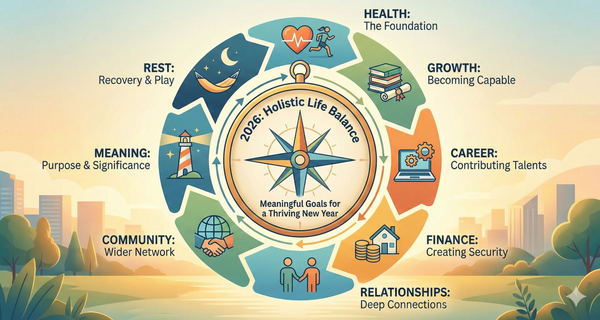The Power of Writing Online for Career Growth
The Power of Writing Online for Career Growth
In today’s digital-first world, your online presence is your new resume. While a LinkedIn profile and a polished CV are essential, they are static representations of your past achievements. To truly stand out and actively shape your professional future, you need a dynamic way to showcase your expertise, your thought process, and your value. This is where writing online comes in. It is no longer a hobby for aspiring authors; it is a powerful, strategic tool for career growth, personal branding, and opportunity creation. Whether you are a software developer, a marketer, a designer, or an entrepreneur, harnessing the power of the written word in a public forum can fundamentally change your career trajectory. This article will guide you through why writing online is a critical skill for modern professionals, how you can get started, and how to optimize your content—specifically on a powerful platform like Ghost—to ensure it reaches the right audience and unlocks your full potential.
Why Writing Online Is Your Biggest Career Multiplier
The benefits of consistently publishing your thoughts and work online extend far beyond simply having a collection of articles. It is an active investment in your professional development that compounds over time, creating a powerful engine for career advancement. Unlike traditional networking, which often relies on in-person events and direct outreach, writing online allows you to build connections, establish credibility, and attract opportunities at scale, often while you sleep. It is the ultimate form of professional leverage in the digital age.
Build a Personal Brand and Authority
A personal brand is what people say about you when you are not in the room. Writing online gives you the power to shape that narrative. By consistently sharing valuable insights, practical advice, and unique perspectives on topics within your field, you begin to establish yourself as an authority. This is not about being the world's foremost expert, but about demonstrating your knowledge and passion. Over time, this body of work becomes a digital portfolio that showcases your expertise far more effectively than a resume ever could. When a recruiter or potential client searches for your name, they will find a rich history of your thoughts and contributions, immediately establishing your credibility and setting you apart from the competition.
Expand Your Network and Opportunities
Writing online is a networking superpower. Every article you publish acts as a beacon, attracting like-minded individuals, industry peers, and potential mentors from around the globe. People who resonate with your ideas will reach out, share your work, and engage in meaningful conversations. This creates a "serendipity vehicle"—a mechanism for generating unexpected opportunities. A well-written blog post can lead to a podcast invitation, a speaking engagement, a freelance project, or even a dream job offer. You are no longer just seeking opportunities; opportunities are actively seeking you out because your writing has made your value visible to the world.
Clarify Your Thinking and Sharpen Your Skills
The act of writing is an act of thinking. To explain a complex topic to others, you must first understand it deeply yourself. This process forces you to organize your thoughts, structure your arguments, and articulate your ideas with precision. It is one of the most effective ways to accelerate your own learning and professional development. Consistently writing about your industry challenges you to stay current with trends, research new topics, and refine your communication skills. These are universally valuable skills that will make you more effective in any role, whether you are writing an email to your team, presenting a proposal to a client, or documenting a complex project.
How to Start Writing Online: A Step-by-Step Guide
The thought of publishing your work for the world to see can be intimidating, but getting started is easier than you think. The key is to break the process down into manageable steps and focus on consistency over perfection. This section provides a practical guide to help you transition from a consumer of content to a creator, laying a solid foundation for your online writing journey.
Find Your Niche and Voice
The first step is to decide what you want to write about. Your "niche" is the intersection of your interests, your expertise, and what an audience finds valuable. Don’t feel pressured to be entirely original. Instead, focus on your unique perspective. What are the common questions you hear in your field? What is a topic you are passionate about explaining? Once you have a niche, focus on developing your "voice." Are you a technical and analytical writer, a humorous and storytelling one, or an encouraging and motivational one? Your voice is your personality on the page, and it is what will make readers connect with you on a personal level.
Choose the Right Platform: Ghost, Medium, LinkedIn, and More
Where you publish matters. LinkedIn articles are great for reaching a professional network, while Medium offers a large built-in audience. However, for serious writers focused on building a long-term asset and optimizing for SEO, a self-hosted platform like Ghost is often the superior choice. Ghost is a powerful, open-source CMS designed specifically for creators. It offers unparalleled SEO capabilities, customization options, and direct control over your content and audience. Unlike other platforms, with Ghost, you own your content, your email list, and your brand, making it a sustainable choice for building a true digital home.
Create a Content Strategy and Editorial Calendar
Consistency is the engine of growth in online writing. To maintain it, you need a plan. A content strategy outlines your goals, your target audience, and the types of content you will create. An editorial calendar is a simple schedule of when you will write, edit, and publish your articles. You don’t need a complex system; a simple spreadsheet or calendar will do. Planning your content a few weeks or a month in advance removes the pressure of deciding what to write on the fly. It helps you stay on track, cover your topic clusters thoroughly for SEO, and build a reliable publishing cadence that your audience can count on.
SEO for Ghost: Optimizing Your Articles for Maximum Reach
Writing a great article is only half the battle; you need to ensure people can find it. Search Engine Optimization (SEO) is the process of making your content discoverable on search engines like Google. The Ghost platform is renowned for its robust, built-in SEO features that give you a significant advantage. By understanding and utilizing these tools, you can dramatically increase your article's visibility and attract a steady stream of organic traffic.
Mastering Keywords and Search Intent
Keywords are the terms people use to search for information on Google. Before you write, you should research what keywords are relevant to your topic. Tools like Google Keyword Planner or Ahrefs can help. But it is not just about the keywords themselves; it is about "search intent." What is the user trying to achieve with their search? Are they looking for a definition, a comparison, or a tutorial? Your content should directly address this intent. Once you have your primary and secondary keywords, strategically weave them into your article's title, headings, paragraphs, and image alt text in a natural way.
Leveraging Ghost’s Built-in SEO Tools
Ghost makes technical SEO incredibly simple. Within the post settings of every article, you will find dedicated fields for SEO optimization. You can write a compelling "Meta Title" (the title that appears in search results) and a "Meta Description" (the short summary below the title) to maximize your click-through rate. You should also customize the "URL Slug" to be clean and keyword-rich. Ghost also automatically generates clean HTML, sitemaps, and structured data, all of which are critical for helping search engines understand and rank your content effectively.
The Power of Internal and External Linking
Links are a crucial signal to search engines about the authority and context of your content. "Internal links" are links to other articles on your own website. They are important for guiding readers to more of your content, increasing their time on your site, and spreading "link equity" throughout your pages. "External links" are links to other reputable websites. Linking out to high-authority sources and studies can increase the credibility and trustworthiness of your article in the eyes of both readers and search engines. A well-linked article is a sign of a well-researched and valuable piece of content.
Conclusion: Your Career's Next Chapter Starts with a Single Word
The journey to building a powerful online presence and accelerating your career growth does not require a giant leap; it begins with a single step—a single word, followed by another. The power of writing online lies in its consistency and its cumulative effect. Every article you publish is a new node in your network, a new asset in your professional portfolio, and a new opportunity for discovery. By choosing a powerful platform like Ghost, defining your niche, and committing to a consistent practice, you are not just writing articles—you are architecting a more dynamic, opportunity-rich, and fulfilling career. Do not wait for permission or for the "perfect" moment. The perfect moment is now. Start writing. Your future self will thank you for it.




